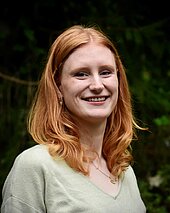Zirbs, Veronika
Dissertation topic:
"Concepts without opposition. The Problem of the Real in Clément Rosset and Gilles Deleuze."
Contact address at the University of Würzburg:
Institute of Philosophy
Ehrenhof, south wing
Residenzplatz
97070 Würzburg
First supervisor: Apl. Prof. Dr Robert Ziegler
Second supervisor:
Prof. Dr Roland Breeur (KU Leuven)
Class in the graduate school: "Philosophy, Languages, Arts"
Doctorate in the Graduate School from WS 2023/24.
Abstract:
We are used to contrasting the real with something else: be it the products of imagination, thought or the meanings of language. This other of the real can be called the ideal. The dissertation will deal with the question: How can the real be conceptualised on the basis of a closer understanding of this distinction?
This closer understanding can be gained through further sub-questions: How is it that we add something to the real to which we deny the status of the real? How is meaning produced, both the "meaning of life" and semantic meaning? Is representation, i.e. the depiction of the real, a helpful explanatory model? What is our affective relationship to the real? Why can we not bear it in its "raw state", but must constantly transform it into meaning? The dissertation addresses these questions by comparing the authors Clément Rosset and Gilles Deleuze, whose approaches share fundamental ideas despite many differences.
The debate on realism over the past centuries and decades forms the background to the work. With an epistemological focus, the discussion in the past centred on the question of the relationship between the real and the ideal. Is it a relationship of representation? Is the ideal partly independent and pre-existent (a priori) or does it arise entirely from the real (a posteriori)? Is there the possibility of a harmonious correspondence between the two sides?
By comparing the two authors, the dissertation endeavours to find new ways of thinking about the problem. Rosset examines the real on the basis of our often distanced relationship to it. Deleuze reverses the perspective, he writes of the real, of events and their effects, without dividing the world, like Plato, into archetype and image. Deleuze is the advocate of the real, but a real without opposition.
Thus, working with Rosset and Deleuze provides insights into the genesis of the distinction on which the realism debate is ultimately based, the distinction between the real and the ideal. This is also a promising endeavour with Rosset and Deleuze because they cannot be clearly assigned to the parties involved in the debate.






